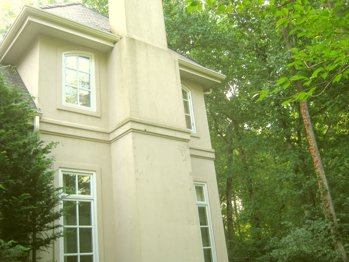
|
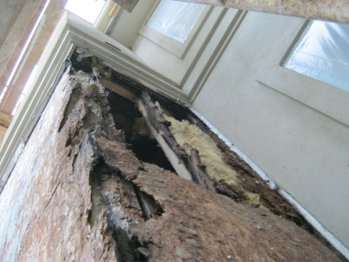
|
EIFS
about to be stripped off chimney.
|
9 year old
chimney already has severe rot
typical of EIFS houses.
|
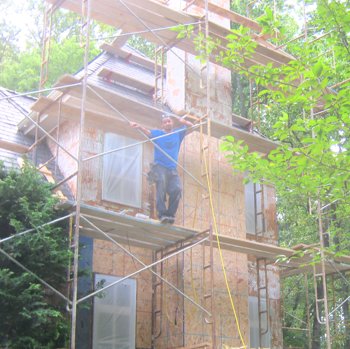
|
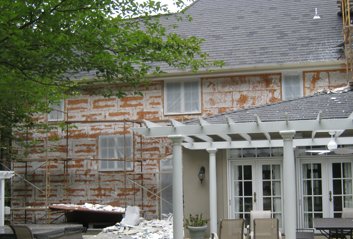
|
Chimney rebuilt
by carpenters.
|
More snow in
August. EIFS stripped off the
rear of the house.
|
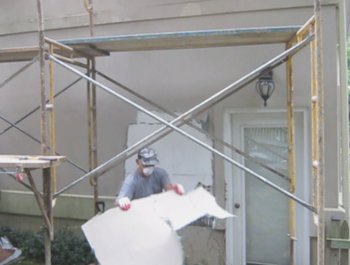
|
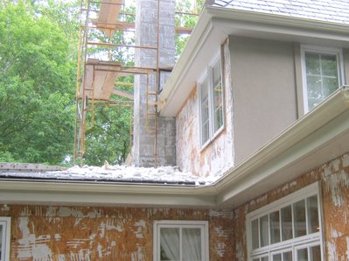
|
EIFS is a plastic cloth,
stuck on foam.
Here, the plastic cloth is
pulled off.
|
Foam looks like
snow on the roof.
|
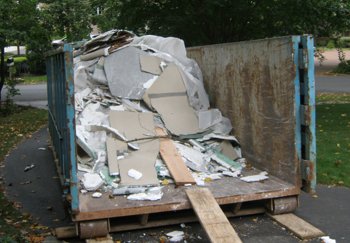
|
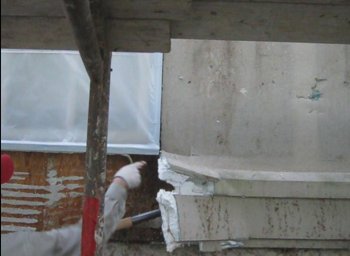 . .
|
Most
of the EIFS on the house fit into
one dumpster load. The foam
packs down and doesn't take up
much space.
|
Under
the windows had some rot, but not
too bad. For the most part, we just let it dry out.
|
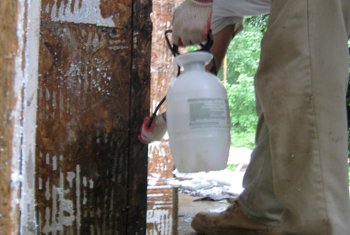
|
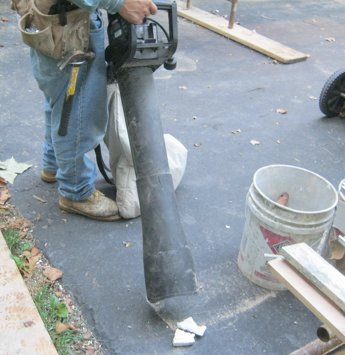
|
The
black mildew was sprayed with bleach. We didn't find any of the black mold or
green mold that we find sometimes on these EIFS tear offs.
|
This
foam is light and blows all over the place. A leaf vacuum works well to
clean it up.
|
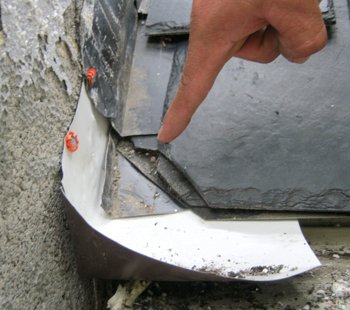
|
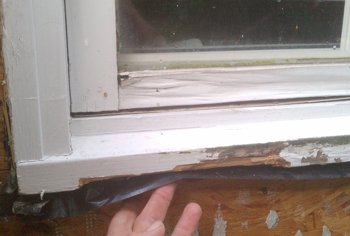 f f
|
A
kick out flashing is put under the step flashing on this block chimney. Later, the step flashing is covered with a counter
flashing. This is important for any material, including siding, brick,
or whatever. The kick out
deflects water into the gutter
instead of running down between the gutter and the wall.
|
Rot
on the wood trim is typical of EIFS installations. This may have been
partly avoided by flashing over the windows.
Lack of flashing above the window causes rot below the window.
Don't believe me ? Here's photographic
proof.
|
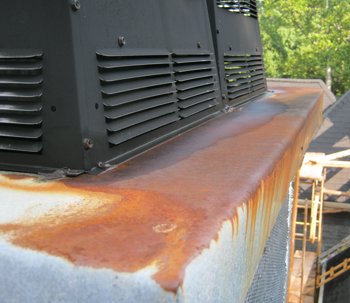
|
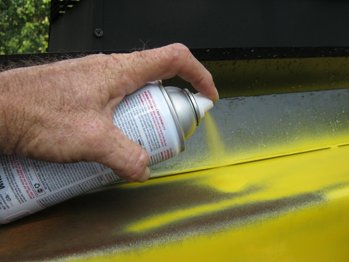
|
Another
sad comment on our building industry is these sorry metal chimney caps they use on new houses. Cap is badly
rusted after 9 short years. Note how the water pools in the center, indicating the cap is sloped toward the center, instead of away from the center.
|
Probably
not necessary, but I painted the
metal cap with rustoleum, before we cover it with lath and stucco.
You may have seen how we do our
chimney caps. If not, please
check back when I update again.
|
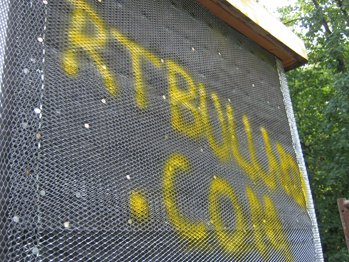
|
Why
did I use yellow paint instead of a different color ? I can use the
leftover paint for signs,
graffiti, etc.
This is a big house. We'll be
here for a while. Please check
back to see how we put it back
together.
|